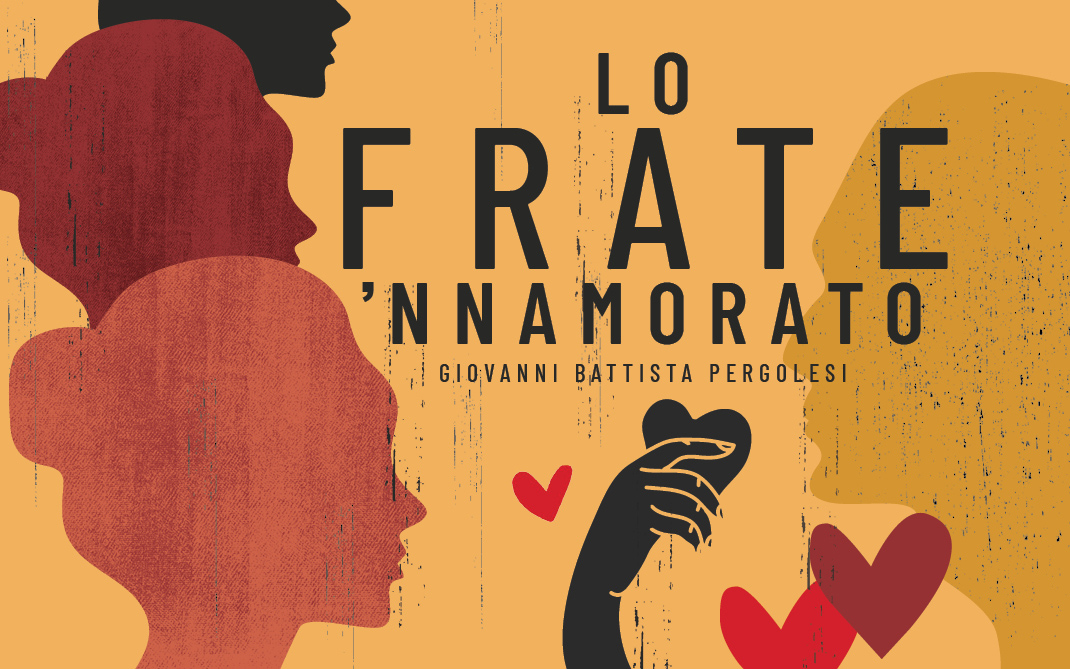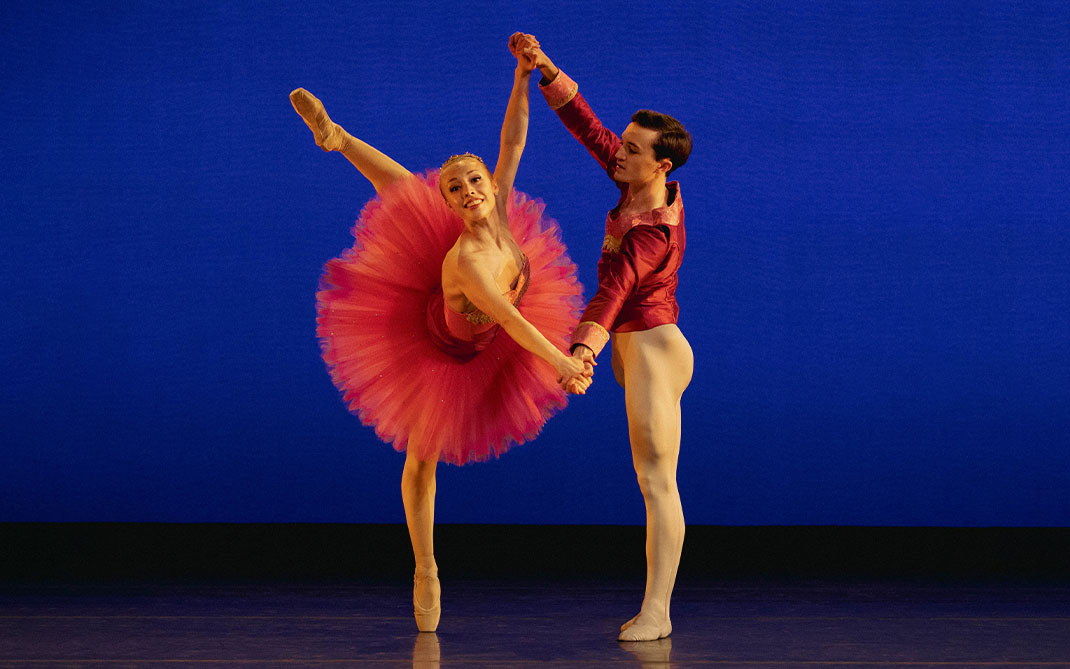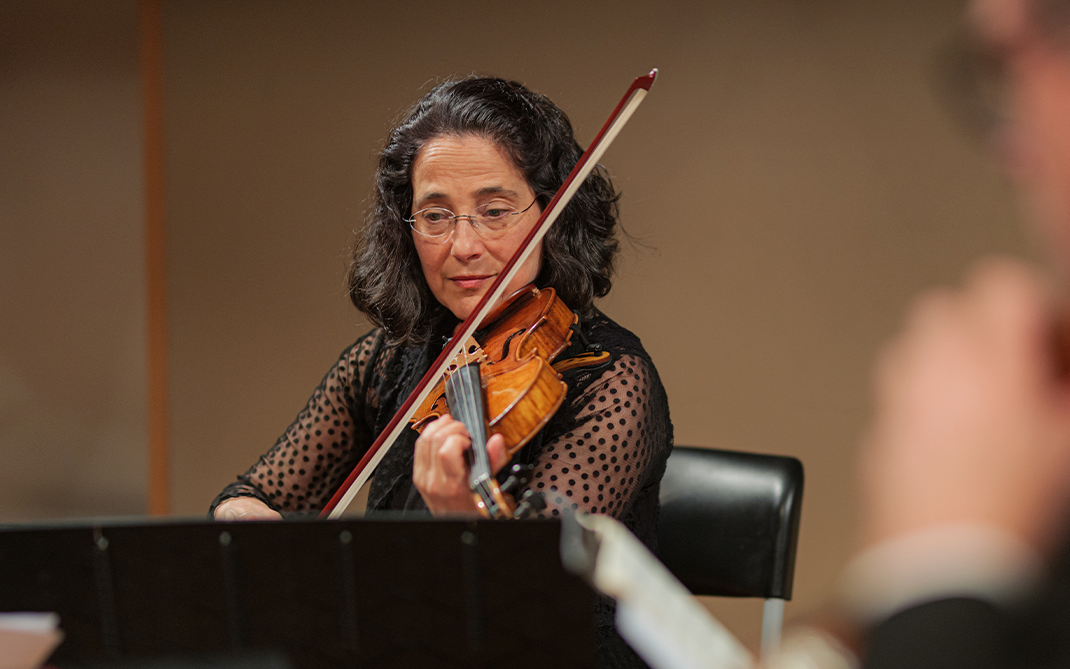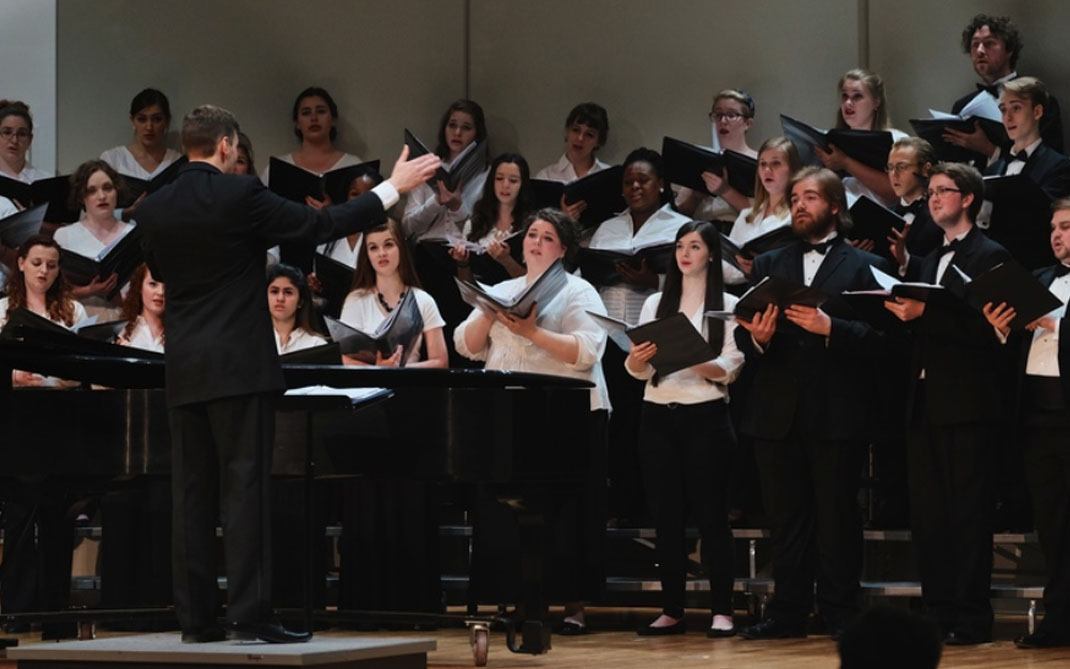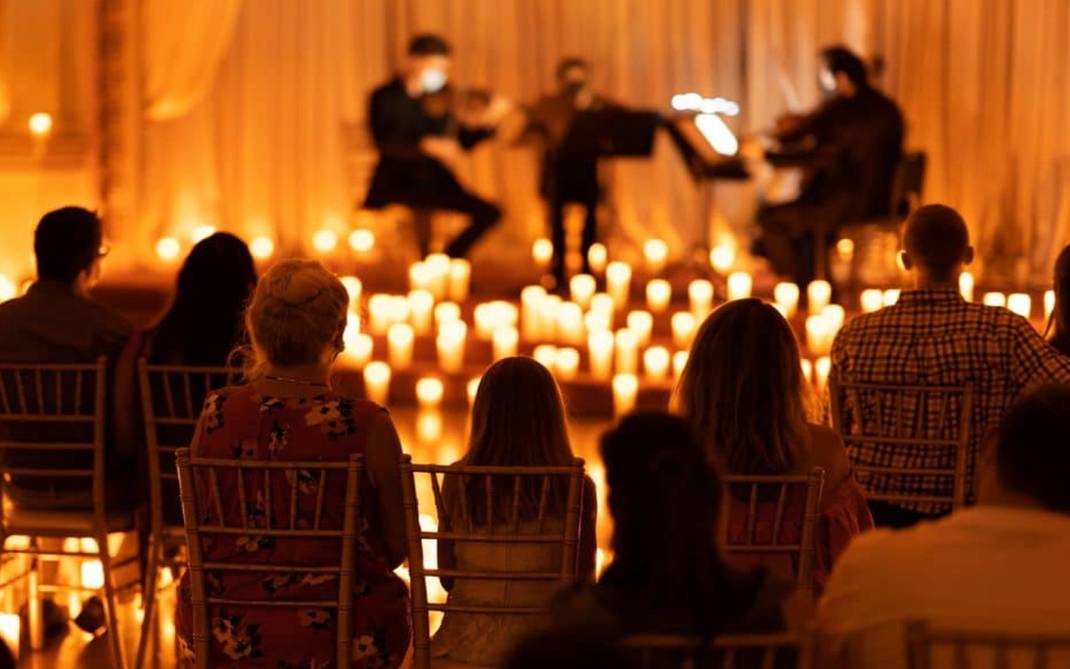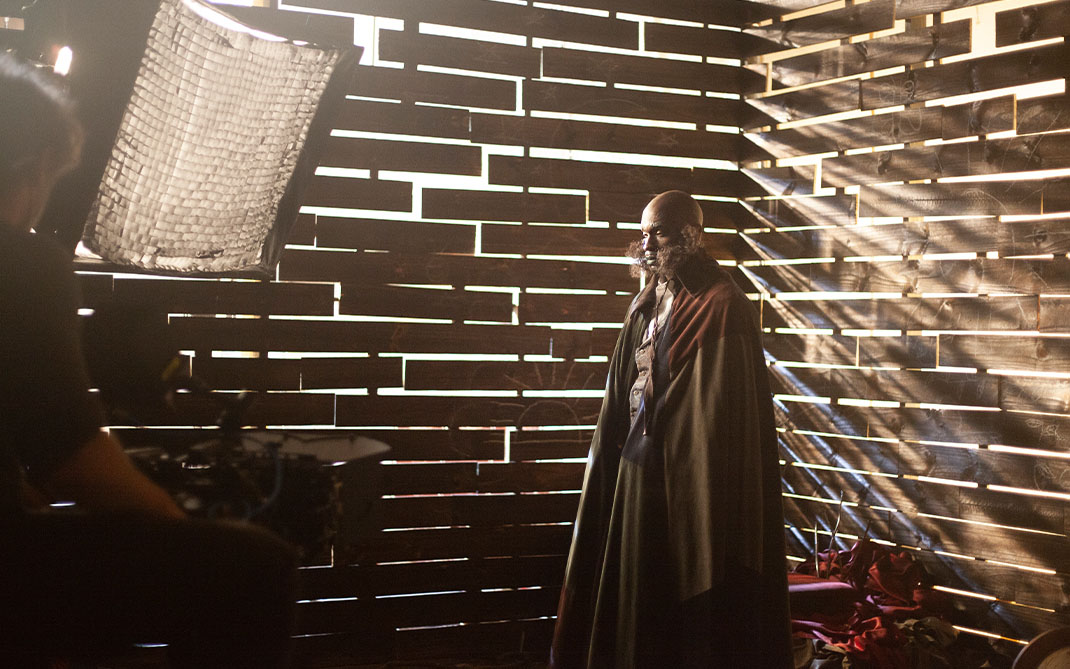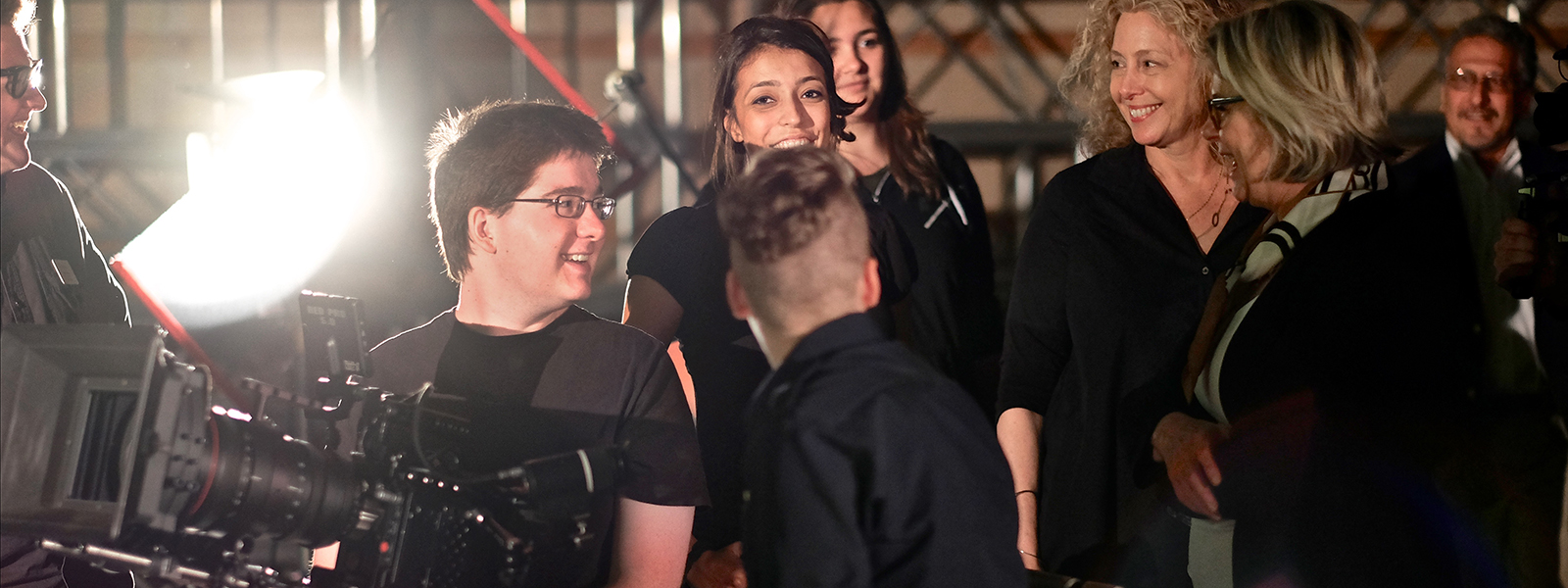The Artist as Leader: Susan Ruskin
Interview conducted by Rob Kramer and Corey Madden
Edited by Betsi Robinson
Since 2013, Susan Ruskin has taken her lifetime of success in the film industry and applied it to the role of Dean of the School of Filmmaking at UNC School of the Arts. Her training as a producer – and her own personal experience as a writer – informs her work with UNCSA students, faculty, and administration. Dedicated to the principles of collaboration and compassion, she strives to lead by example and encourages those around her to face their fears of failure and to use their mistakes to become better, stronger, more compassionate artists.
Choose a question below to begin exploring the interview:
- How did your upbringing and your background influence your leadership style?
- When did the arts become a part of your life?
- How did your two sides [performer and producer] come together in terms of how you evolved into who you are as a leader?
- Can you talk about the relationship between being a producer in film and being a leader in the film school?
- What is different about leading a team for a six-month film project versus the longer-term process of leading faculty and staff?
- How did you learn the difference between the best actor and the right actor?
- How do you lead other artists?
- You said that being a producer is the best training to be a dean. Can you talk more about that?
- Is writing something that you've done all your career?
- How does having the heart of a writer inform how you lead?
- What are the greatest rewards of being a leader, especially a leader of artists?
- How do you lead people through the failures?
- What attributes do you think are most important to be an artist leader?
- What advice would you have liked to receive when you were starting out as an artist leader?
- Epilogue
CM: Susan, tell us about yourself and how your upbringing and your background have influenced your leadership style.
I grew up in South Africa at a time when it was a closed and much more repressed society. My parents consciously worked hard to make us believe that we didn't fit into those norms, that as a woman I could do what I wanted, as my mom did. As a family who wanted to vote in a different way than the government wanted its people to vote, we actually moved houses to make sure that we could do that. We always had to go that extra mile to do what we believed in, and I never was led to believe that wasn't possible.
I think my upbringing has a lot to do with both the positive and negative of where I am now, which is to assume that if the idea is good, and has been tested and been thought about and been researched properly, there's no reason it cannot get done.
RK: When did the arts become part of your life?
SR: From the minute I was born. My mother was a theatre director and teacher, and I started performing when I was 5, maybe even before. So I've grown up around the theatre and in the arts. My father, on the other hand, is an engineer and a businessman -- and that other side of me, the producer side, is also present. I've made both the parents proud, I think.
RK: How do those two sides come together in terms of how you evolved into who you are as a leader?
There's money to be made in all the arts, but that really only happens when what you're passionate about dovetails perfectly with what an audience is looking for. Success comes in that moment where those two things cross.
SR: I understand what drives an artist. But at the same time, I have that more rational brain of trying to figure out how to make it work in the most effective way possible.
There's money to be made in all the arts, but that really only happens when what you're passionate about dovetails perfectly with what an audience is looking for. Success comes in that moment where those two things cross. It’s not necessarily about the art itself or about who you are as an artist. It has much more to do with that particular project. I hear so many times, from theatre people in particular, but also artists who paint or musicians or dancers, "Oh well, but you make films, so therefore there's a lot more money in that." That's actually not true.
In fact, if any filmmaker, any storyteller, tries to do something that really is from the heart and really speaks to who they are as an artist, it is just as much of a struggle to make money, or to find funding as it is to mount a piece of theatre, or to put on a concert. … There's this notion that if you want to go make a movie you're going to make a ton of money, which is just rubbish. It doesn't work that way.
RK: It's the notion of the independent filmmaker?
SR: It's the independent filmmakers and the studio films. I've worked on probably hundreds of scripts, and one-tenth of them have been made. It's a struggle to get anything you want to do as an artist done, no matter how much it costs to do it, or how much potential there is on the back end. It doesn't matter what field that is.
When people dismiss film as an art form, steam comes out of my ears, "Have you any idea what it takes to get a film made, and to get a film then seen and distributed and marketed?"
I try to help our students understand this, too, that to make a movie is only one tiny step in the process. In fact, it's the smallest step in the process. It's the easiest. It's the development process beforehand that's where the film is made, and then it's the distribution/marketing side of it that allows people to see it. Those are the two far more complicated, tangly, knotty, time-consuming things that happen in the art of making a film. The weeks of production are about executing the plan made during development and pre-production.
RK: It sounds like timing is part of it as is understanding the audience?
SR: Understanding the audience is only a small part of it. I'm of the belief now, and especially as the distribution models collapse, I think there's going to be a renaissance. As data analytics becomes more and more available to us as artists, we can actually find our audiences better and we can target our audiences better. We can look at what that potential is and back into what a budget might be, and really think about the stories that we want to tell and to whom we're telling them before we even put pen to paper. That is what the new MFA [in Creative Producing and Screenwriting] is based on. It's recognizing the opportunities of all the different platforms out there to distribute a film, or a television series or a webisode, and figuring out the audience before you actually develop the material.
CM: One of the things that I find striking is that creative leaders in film have to understand how all these different aspects impact the film’s success. Can you talk about the relationship between being a producer in film and being a leader in the film school?
SR: Collaboration. In film, the beauty of what we do is that we work collaboratively. The difficulty of what we do, is we work collaboratively. No single vision can actually get the product made in the end, and yet having a vision throughout the process is essential. Sometimes that vision can shift from one person, one position, to another.
I’ve lived my entire adult life working collaboratively and understanding in my bones that you can't do it without a team. That makes it an easier transition to be here with the faculty — who I have a great deal of respect for and I believe deliver most of the hard work — and it's my job to listen to them and understand why they do what they do, and what they care about.
I’ve lived my entire adult life working collaboratively and understanding in my bones that you can't do it without a team. That makes it an easier transition to be here with the faculty — who I have a great deal of respect for and I believe deliver most of the hard work — and it's my job to listen to them and understand why they do what they do, and what they care about. It's the same thing with running a staff.
I've produced movies that cost far more money than this place costs to run for a year. It’s bringing the right people together and making sure, if you're going to go into the jungle for six months, that every single person on your crew is somebody that can handle being in the jungle for six months. Because if they can't handle it, then you've got a problem to deal with. Just in terms of hiring people, you have to understand the purpose of your project, or what the school is, or what the company needs to accomplish. You have to think about putting the right people together, and how they will work with one another and help each other. The whole is greater than the sum of its parts.
RK: What is different about leading a team for a six-month film project versus the longer-term process of leading faculty and staff?
SR: I pace myself. I don't think it's significantly different, if you've got the right people around you. When it is different, is when it's the wrong people. That's harder when running a school than in production because you can’t say goodbye in six months. There is no natural completion of a contract.
I'm very proud of the hiring that I've done here, because we've had an influx of people into the film school, and I think it's made everybody happier. I think everybody is feeling that we have a more cohesive, collaborative working environment, and that's partly because I was very careful in who we agreed to have join the UNCSA family. I didn't settle, and some positions sat for a while, because I knew it would upset the apple cart. I worry about how delicate that balance is with people here and how they're getting along with each other. I think it is really important to find people who bring out the best in those around them all the time. Then that raises the level of everybody else.
RK: As a leadership coach, I often say that hiring well takes care of about 80 percent of your problems.
CM: Right. It's like casting.
For a director ... casting is 80 percent of the job. If you put the right actors in the role, your job as a director is smooth sailing. When I try to explain this to our young directing students, they think that means the best actor. It is not necessarily the best actor that walks into the room. It's the right actor for that role ... Helping young people to understand that is very difficult.
SR: For a director in film, and it's the same thing in theatre, casting is 80 percent of the job. If you put the right actors in the role, your job as a director is smooth sailing. When I try to explain this to our young directing students, they think that means the best actor. It is not necessarily the best actor that walks into the room. It's the right actor for that role who isn't always the best actor. Helping young people to understand that is very difficult. I think that takes time.
CM: How did you learn that — the difference between the best actor and the right actor?
SR: The first movie I produced, the director of the film was Gene Wilder, who is an actor and a director. It was based on a French film that already existed. I worked with Gene for a while, so I really got to know and understand how he worked. He would never read an actor. At a certain point very early on, I turned to him and asked, "How do you know that this person is the right choice for the role?” I had my doubts on this one particular person. He said, "I assume they're in the room because they know how to act, otherwise my casting director isn't doing their job. I'm looking to see how I can communicate with that person.”
It was interesting to learn from him that years and years of acting gives you an instinct, and he definitely had an instinct for who he could work with and how he could play with them within a scene. That was a conversation. That wasn't about them reading.
CM: He was assessing rapport, assessing engagement back and forth, and how it would be to work with this human being?
SR: Correct, and as an actor, what the play might be between the two of them. Actors run the gamut, as you guys both know. You go from the most talkative to the most silent, you go from the one that's done the most work to one that has done nothing. I just watched him pulling out, or teasing out, what he was looking for to find out whether they could play together or not, without them even realizing it. It's a learned kind of reading of people and what they're bringing to the table, and what questions you ask them in order to draw them out. I learned that from Gene.
CM: I learned a version of this from Jon Jory, who ran Actors Theatre of Louisville. When I was his casting associate, Jon used to say, "Look for the actor who can think." He said, "Always give an adjustment, because you want to see whether the actor can think. Always choose the more interesting actor, and always choose the thinking actor." I think about casting a staff. I pay a lot of attention to the energy of the group, and pick certain people and encourage certain roles for certain people.
SR: Right. We definitely cast our staff. I think everyone does that to a certain extent.
RK: I think artists develop an attunement to this notion of human interaction and engaging other people. I don't know if it's a sensitivity that gets developed as someone grows as an artist, or the type of personality that gravitates toward the arts. But there's a heightened sense of interpersonal sensitivity that I see more in the arts.
I don't believe you can be an artist or a storyteller without understanding human nature. That's what we do. We observe people. There's a certain point in our careers when that becomes a fantastic tool because you know enough to be able to use it to your own advantage in everything in life.
SR: Well, I don't believe you can be an artist or a storyteller without understanding human nature. That's what we do. We observe people. There's a certain point in our careers when that becomes a fantastic tool because you know enough to be able to use it to your own advantage in everything in life. You can't sit down and write a character without understanding human nature. …
You're always looking to understand people better and understand how they operate in the world better, and then you use that in your art, and you use that when you're hiring or when you're putting an organization together.
RK: How do you lead other artists?
SR: That's an interesting question. I haven't really thought about that other than to say that I get excited by other people’s passion, even if it's not something that would be for me. As a producer, I've had to say ‘no’ a thousand, ten thousand times. But I find myself getting excited about somebody else's project because of their passion, and they express it in a way where I can see the whole thing. As soon as I can see the whole, then I can be 1,000 percent behind them and help to support that.
When I see that they're still searching, then I immediately go into the mode of, "OK, well let's don't think about it this way. Let's talk about it this other way." I can always find the element in it that is worth making, always.
RK: People ask me how my actor training translates to being a leadership coach, and I say 85-90 percent of it is the same process I use as a director working with actors. It's just a different language in the leadership arena, but it's the same process — listening, challenging, supporting, moving them down their road of thinking, supporting their own development.
SR: I actually think that being a producer is the best training to be a dean.
RK: Can you talk more about that?
SR: It's almost parallel to what you do in producing a project or producing a film. You have to see the big picture. Where a director is looking inside of the frame, the producer is always seeing the bigger picture. You have to maintain the enthusiasm and vision and passion for what you're doing, and you have to spread that to every single member of your team.
When I fully produced my first movie after "The Woman in Red" with Gene Wilder, I did it in London. The unions are very strict in London and I came in immediately asking for things outside of their realm. I got off on a slightly iffy footing with them, and then had to bridge the gap, make peace. And then I would do things like on the morning break for the set construction crew — the construction people are always a week or two ahead of the main crew — I would go to see them on stage to just have a cup of tea with them and play darts. I was there 15, 20 minutes, just to say ‘hi’, see how they were doing, and leave. They said, "Never, ever has a producer, British or American, come to visit with the construction crew on their breaks." I did it probably three or four times a week. By the end of that show, I was their favorite. Because here I was, I was very young, in my mid-twenties, and I was their boss, and they'd never had a woman that young as their boss.
I had to learn at a very young age how to be in a position of authority and earn that. Not just be in it, but earn it.
CM: Is writing something that you've done all your career?
SR: I was a closet writer. I started in college, actually, writing short stories, and then started writing screenplays. I love writers, and I love the process of working with a writer, but my own writing is not something I ever allowed anyone to see. Until one day, probably about 10 years ago, an agent called me up and asked me to work with this very well-known, Academy Award-winning production designer. He had been working on a script that was based on a book, and it was not a subject matter that had any emotional connection to me, but I thought the book was beautiful. I thought the script just completely missed the boat.
Designers tend to be very visual, and respond viscerally in the moment, so sitting down and doing development with a designer is anathema to the designer. I found myself really struggling to communicate effectively and I said, "Listen, I would never recommend doing this, but I can see this movie. I can see the first act of this film. I'm just going to write it for you, give you the pages, and we'll go from there." I did, and I gave it to him and to the agent, and the agent was blown away and said, "I want to represent you as a writer. How come you haven't been writing?" That's what got me started. They still represent me, but now I don't have time to write.
CM: Knowing that you have the heart of a writer, how does that inform how you lead?
SR: Compassion. Producers know a hell of a lot on a very superficial level about a lot of different things. As a writer, you have to really dig deep. It's probably the deepest, most difficult thing to do well of all the skill-sets required in the filmmaking process. You can't rely on technique at the end of the day. Yes, there's all kinds of techniques that keep you moving through the process, but at the end of the day, it's that blank page and what you put onto that page. It’s all about you and the page. There is nothing in between. I think it's helped make me more well-rounded, more respectful of process, more patient in some ways, not to expect everything to be done perfectly right away because I know how long it takes to do it right. At the same time, I think it's also made me more rigorous with people.
CM: Your BS meter goes up?
SR: All the time. … I like a slick piece of work just as much as the next person. I get that, but there has to be some authenticity behind it. It's very difficult when you're dealing with students. You don't expect it of them. But when you're dealing with adults and you do expect them to understand the difference, that's when it gets painful.
RK: What are the greatest rewards of being a leader, especially a leader of artists?
SR: Those ‘aha’ moments when the light bulb goes on for somebody. … Everything fits into its place, and you go, "That's it." I live for those moments. That could be as a teacher who has found the right syllabus, the order of how they want to teach something. Or it could be a page in the script when a character comes in at the exact right moment and says the right pithy line. Or it can be a production where the right team has come together, and you're just sitting back and watching them do the work.
RK: It's very appealing, isn't it, that charge of creativity?
SR: It's a charge, an absolute charge, but it's one that you have to reach with every project you do, because if you don't reach it, the audience isn't going to reach it. You have to find that gestalt moment in everything you do. I expect any artist who is working with me to find that same thing as we work together. It could be a designer that finds it in a prop. It could be a costume that defines the character. That's why casting is 80 percent of the job and hiring is 80 percent of the job. Because the best costume designer, the best production designer brings so much more to the table and they fill out the character that you’ve written, or created, or developed for three years.
CM: On the converse side, how do you help people get through the amount of failure that's in the business? How do you lead people through the failures?
SR: ‘No’ is always just a step along the way, a point along the route. It's not accepting a ‘no’ or accepting failure -- resiliency is one of the most important things that we can teach young artists.
CM: When that failure moment happens with that director, what do you say to them? How do you lead them through that?
[Failure] happens to everyone. Get up, dust it off, move on. There's no crying. Get over it. Get used to it. Turn the failure into something more interesting, something more creative.
SR: It happens to everyone. Get up, dust it off, move on. There's no crying. Get over it. Get used to it. Turn the failure into something more interesting, something more creative.
RK: I think artists develop resiliency in a unique way that I don’t see in other professionals.
SR: Because we deal with failure regularly. I mean, we fail in little ways that most people don't even know about so much of the time. It's really a matter of how we deal with it. I had a student in front of me recently and he said, "I'm making a $17,000 music video and, you know, I really don't think I'm going to do another movie within the school parameters. I'm just going to do my outside projects because I'm going to raise all this money to do them myself." I said, "Really? Let's talk about why that is.” And he said, “Oh, I need to be more spontaneous in the moment and I think the development process kind of killed it for me. My second-year movie wasn't what I wanted it to be. I'm not sure that it was very good." I looked at him, and I said, "No, it was pretty bad." He was devastated. He looked at me like I was supposed to disagree with him.
I said, "There were so many rookie mistakes in that movie. Do you want me to sit here and tell you that's OK? Let me explain something to you. I'm glad that movie wasn't very good, but what makes me sad is you think the problem was that the development period took too long a time. I know that if you don't put yourself through this process again, you won't ever give yourself a shot of having a career because you're going to go from one experience to the next where you hope for the best, and you hope you have good people around you, so that at least craft-wise you've got something to show for it. But you just want to wing it on talent alone. You need to be capable of doing the hard work when it comes to being able to maintain a vision through a process. It’s not going to happen in three weeks. I urge you to develop a script that you don't write, that you are forced to have to work with a writer on, and you are forced to develop for a full year, and you are forced to maintain a vision for that." I said, "And fail again, that's OK by me." He was just shocked. He just wanted me to tell him he was OK.
RK: I love what you said. You did not step away from an important teachable moment.
SR: No, but I did ask him if he wanted me to lie to him.
RK: Right. You asked that, and at the end you said, "And I'm OK if you fail." You said, "Take a lot of risks, and I push you, I challenge you to do it, and it's OK. You're going to mess up.” I think many people don't get that message from their leaders.
SR: Well, I really try to get our students to push to the point of failure here, because I've seen it. The ones that fail here in a safe environment are the ones that will do better in the long run -- the ones that learn how to overcome that failure and move on.
CM: It sounds as if maybe you had an experience like this, of recognizing that you exist after failure.
SR: Well, I think I fail every day, so I wake up every morning having to repair whatever I failed at the day before. I didn't fail young. Most people from the outside would look at me like, "Oh, you just whizzed through your career at a very young age." True, but I think I lived with this certain level of either insecurity about it, or whatever it was that made me recognize all the tiny little failures along the way. The big failures I made tended to involve being too loyal, being committed to something for too long, and not letting stuff go. Maybe if I had failed earlier it would have helped me to let stuff go sooner.
RK: What attributes do you think are most important to be an artist leader?
SR: I think it's really important to be able to maintain a clear sense of what your purpose is and what you're doing, and to be able to hold onto that and not bend too easily to either insecurities or fears. … Especially here, there's a lot of conflicting needs and desires and wants, and you can't lead your school if you don't have a clear sense of where you're headed and what the horizon line promises. If you let people tip you off of that too easily, you will fail. …
I think there is an inevitable failure for a dean because of burnout. Being able to maintain a clear sense of that horizon is what keeps you from allowing the burnout to trip you up along the way. … The last dean used to say, "She has broad shoulders. Let her do it." Having broad shoulders, being able to take it on, is very important in this position.
CM: What advice would you have liked to receive when you were starting out as an artist leader that you'd like to pass on to others?
SR: The advice I would have liked that I didn't get is not to rush -- not to think that you need to reach that next accomplishment, but rather to appreciate and live in the moment and do the best work in that moment. And never to let go of that creative spark that's in you. Understand it. Get to know it better. Be familiar with it. What is it that moves you, that creates that passion in you? Stay in touch with that artist, because there are going to be times as a leader you're going to be swayed by the job and lose a bit of what the artist is, but you need to maintain both at all times.
Whether producing, teaching, developing, or writing, Susan Ruskin maintains a clear vision and is driven to accomplish her goals. Leadership lessons we can take from our interview with her include:
- Build a good team. Hire people who will work collaboratively.
- Communication skills are key. Talent aside, it is equally important to be able to communicate well with and understand others.
- Be trustworthy. Positional power does not mean people will automatically want to follow. Earn others’ trust to gain their followership.
- Keep trying. Negative or critical feedback is useful information, not an invitation to give up.
- Help others learn from mistakes. Create a safe environment for people to explore, make mistakes and learn to overcome failure.
- Set an example. Model how to overcome challenges so others can adopt a possibility mindset.
— Rob Kramer
